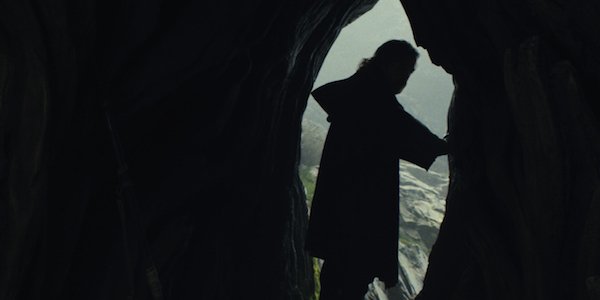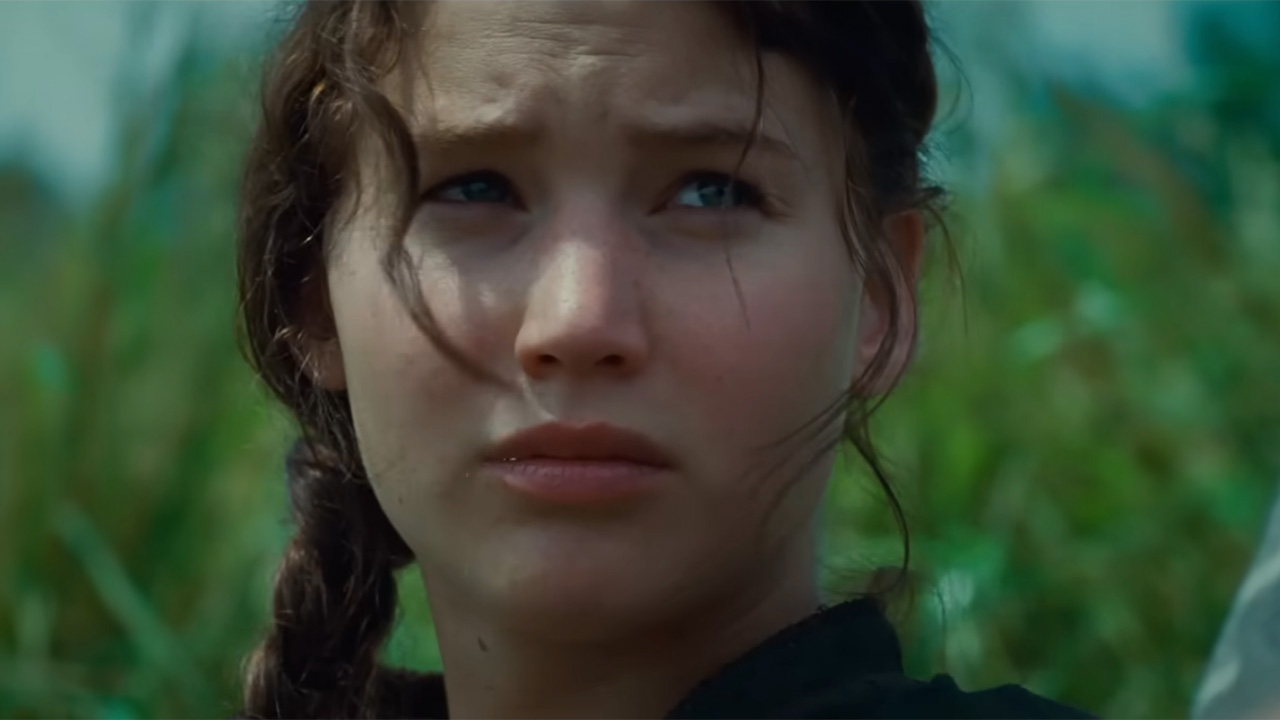Why Subverting Expectations Was Incredibly Important To Star Wars: The Jedi, According To Mark Hamill

Warning! Major spoilers to follow for Star Wars: The Last Jedi. Come back later if you haven't seen it yet.
Rian Johnson's Star Wars: The Last Jedi is a film that surprised a lot of people. While fans had spent two years building up certain expectations for how events would go down in the anticipated sequel, the blockbuster shocked fans with twists at every turn -- from the revelation about Rey's parents being nobody to Luke's first reaction seeing his father's lightsaber. It ultimately had the effect of rubbing some folks the wrong way, but to hear star Mark Hamill talk about it, you begin to understand why all of those choices were important:
As you go along it's more and more difficult to surprise people. You want to deliver the elements that everyone expects - the action, the adventure, the spectacular sort of special effects, the characters, and the humor, which I think is very important. Because when I read the original Star Wars I thought it was hilarious. I mean, robots arguing over whose fault it is? It was absurd in a delightful way. So I think that was Rian's challenge, and I love the unexpected.
This was just the start of my recent conversation with the legendary actor, whom I had the opportunity to sit down with earlier this month during a special Star Wars: The Last Jedi press day in Dublin, Ireland. Right out of the gate I told Mark Hamill how much I appreciate the way in which the movie subverts expectations, and asked for his thoughts regarding the importance of those decisions made by writer/director Rian Johnson. Hamill certainly agreed, and then went into major detail about why the filmmaker's choices were the correct ones.
Similar to comments he made back in December when he was first really promoting Star Wars: The Last Jedi, Mark Hamill told me that he initially recoiled at the path set down for Luke Skywalker by Rian Johnson, but it was something that he eventually understood by digging into the larger context of the material. He related the path of the heroic Jedi to the direction that our world has taken since Star Wars first became a thing back in mid-20th century, and came to the realization that Luke's cynicism is well-earned in contrast to the optimism he personally possessed as a young kid. Hamill explained,
It was sort of uncomfortable; he pushed me into places I didn't want to go. But you can't recapture your youth. You can't be the cocky, happy-go-lucky optimist without being repetitive. And for him to sort of have this dark vision, it was really hard, because you have to relate it to your own life, as fantastic as the situation is. I'm sort of of the Beatles generation, 'Love Is All You Need.' I thought by the time I grew up there would be no wars, everybody would get along, there would be no more prejudice, pot would be legal. You know, all the important things in your life. But we failed - miserably! Arguably the world is much worse than it was in the '60s and '70s. So I sort of drew on that, and even added a backstory that no one knows about in addition to being wrong about choosing Kylo Ren as 'the one.'
Unfortunately, prying this secret backstory from Mark Hamill has proven an impossible task thus far -- but perhaps someday we'll learn about his interpretation of what happened to Luke Skywalker after Star Wars: Return Of The Jedi.
Getting back to the subject matter, though, Mark Hamill continued saying that the development of Luke made filming Star Wars: The Last Jedi a challenging experience, because the character's sadness legitimately conflicted with the amount of fun he had working on the movie. That said, he also earned an appreciation for a new viewpoint within the classically black-and-white morality of the franchise, explaining that he weirdly connected a lot with DJ, the character played by Benicio Del Toro:
It was sort of a paradox, because it's impossible not to have fun making a Star Wars movie. It's Star Wars! But Luke's story is so sad, confronting his own mortality, and the failure, and futility... I find it ironic that one of the characters I'm most in sync with is Benicio Del Toro's character... We process it in different ways, but we both become really cynical about the futility of conflicts. I think it's audacious as hell. It's challenging, and ends, like you say, so many preconceived notions, and I love it for that reason.
You can watch Mark Hamill discuss at length the surprising subversion of expectations in Star Wars: The Last Jedi by clicking play on the video below:
Your Daily Blend of Entertainment News
Mark Hamill was an utter delight to talk to -- and this is only a portion of my interview. Head over here to learn about the actor's experience working with a giant BB-8 while doing some performance capture work on Star Wars: The Last Jedi, and stay tuned for more here on CinemaBlend. And if all of this gets you excited to see the film once again, the good news is that it's now available on all home video formats, including digital download, Blu-ray, DVD, and more.

Eric Eisenberg is the Assistant Managing Editor at CinemaBlend. After graduating Boston University and earning a bachelor’s degree in journalism, he took a part-time job as a staff writer for CinemaBlend, and after six months was offered the opportunity to move to Los Angeles and take on a newly created West Coast Editor position. Over a decade later, he's continuing to advance his interests and expertise. In addition to conducting filmmaker interviews and contributing to the news and feature content of the site, Eric also oversees the Movie Reviews section, writes the the weekend box office report (published Sundays), and is the site's resident Stephen King expert. He has two King-related columns.
